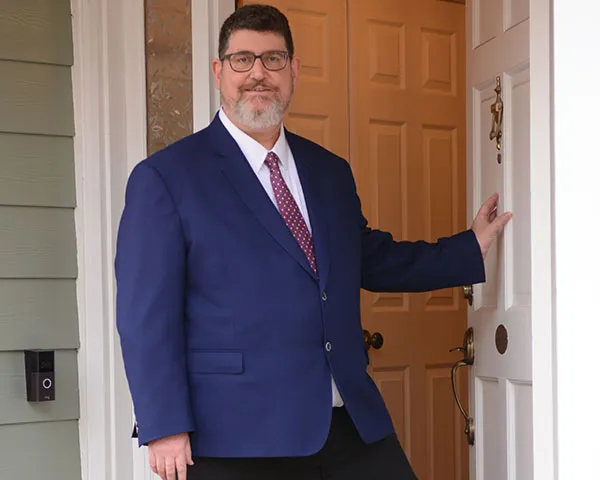

Effective Jan. 22, 2025, USCIS is waiving any and all requirements that applicants receive the COVID-19 vaccination.
Ideally, the applicant’s personal physician, who should have the best knowledge of the applicant’s disabilities, should complete Form N-648. However, any physician licensed in any state may complete the form. The form does not have to be completed by a Civil Surgeon.

Before seeking an exception to policy, it is important to understand the components of and reasons for the U.S. Citizenship Test. The test marks a crucial step toward achieving U.S. citizenship. It evaluates the applicant’s comprehension of U.S. history, government, and basic English proficiency. Attaining a passing score is paramount for naturalization, showcasing a deep commitment to becoming an informed and engaged member of society.
Beyond a mere assessment, this test holds immense significance by ensuring that new citizens understand America's core values, historical evolution, and governmental framework. This foundational knowledge empowers new citizens to participate actively in civic duties and contribute meaningfully to their communities. Successfully passing the test signifies readiness to embrace the responsibilities and privileges of U.S. citizenship.
The civics section of the U.S. Citizenship Test encompasses a wide range of topics that every new citizen should know. This section includes questions about American government, history, and symbols.
The civics test consists of 100 questions, of which the USCIS officer will ask 10 during the naturalization interview. To pass, the applicant must correctly answer at least 6 out of 10 questions. The questions are presented orally. Accordingly, English speaking skills and the ability to understand spoken English are required.
Understanding the structure and functions of the American government is crucial for all citizens. Questions in this category may cover the three branches of government, the roles of the President and Congress, and the principles enshrined in the Constitution.
A solid grasp of American history helps new citizens appreciate the nation's journey and values. Questions may focus on significant events such as the Revolutionary War, the Civil Rights Movement, and key historical figures such as George Washington and Martin Luther King Jr. Understanding these milestones encourages a deeper connection to the nation's past and evolution.
Integrated civics questions assess knowledge of U.S. geography, symbols, and holidays. Applicants might be asked to identify states on a map, explain the significance of the American flag, or describe national holidays such as Independence Day and Thanksgiving.
In addition to the English language skills required to pass the civics test, the English test for naturalization includes three parts: reading, writing, and speaking. It assesses basic English proficiency crucial for everyday communication and integration into American society.
Applicants must correctly read one sentence out of three, correctly write one sentence out of three, and demonstrate the ability to respond orally to basic English prompts and questions. USCIS officers evaluate clarity, accuracy, and the ability to follow instructions during the interview and tests. Proper pronunciation and grammar are also key indicators of effective communication skills.
Preparation is key to passing the U.S. Citizenship Test, and numerous resources are available to help applicants. The USCIS provides official study materials, including a list of civics questions, practice tests, and flashcards https://www.uscis.gov/citizenship/find-study-materials-and-resources. Additionally, online courses, community classes, and study groups can offer valuable support and guidance.

Consistent practice is essential for success. Applicants should consider the following:
A licensed physician, ideally the applicant’s personal physician, can make a case to USCIS for an exception to the requirements to pass the English language and/or Civics tests by completing form N-648. USCIS, not the physician, makes the final decision.
In general, an applicant must have severe mental and/or physical disabilities for an exception to policy to be seriously considered. These disabilities must be documented in the applicant’s medical record. Simply stating a history of a disability is not sufficient. If there is no such documentation available, applicants are expected to enter the care of a physician or physicians in the appropriate specialty or specialties for enough time to create such a record, a process that usually takes several months.
Special testing may be required, particularly if a mental disability is claimed. At a minimum, such applicants may expect to provide formal intelligence or IQ test results. Consultation with a psychiatrist, psychologist, and/or neurologist are also usually required.
Physical disabilities may also require specialty consultation from physical/occupational therapists, neurologists, or other specialists. Again, documentation in a medical record must be provided or created, as for mental disabilities.
The United States believes that becoming a naturalized citizen is and ought to be something that an applicant values enough to have to put in the time and effort to pass the tests. It is an important way for applicants to demonstrate to the United States that they are truly committed to becoming engaged and productive citizens.
Many applicants believe that one may be “too old” to be expected to learn the requisite English language skills and civics knowledge. Another common reason that many applicants believe qualifies them for an exception to policy is lack of a formal education. These are not acceptable reasons for an exception to policy. If an otherwise non-disabled applicant can speak and understand any language, it is reasonable to expect the applicant to be able to learn basic English and civics, regardless of age or amount of formal education.
Remaining a permanent resident instead of becoming a citizen may be a reasonable alternative for an applicant that, for whatever reason, is not willing to put in the extra effort required to pass the English language and civics tests necessary for citizenship. The biggest difference between permanent residency and citizenship is that only citizens are allowed to vote.
After 5 years, permanent residents are eligible for most public benefits, including some Medicaid and CHIP programs. Certain refugees, asylees, and individuals who were previously refugees or asylees, may not have to wait even that long. In addition, certain states have chosen not to enforce the 5-year waiting period. Furthermore, permanent residents are eligible for Social Security benefits after working for at least 10 years in the US and may qualify for Medicare upon reaching retirement age.
Another factor applicants should consider is how valuable it is for them to remain citizens of their native country. Depending on the country, dual citizenship is not always possible. If renouncing the citizenship in one’s native country is required, the applicant must be comfortable with that.
Travel is allowed for permanent residents. They are, of course, free to travel throughout the United States. They may also travel to most foreign lands for up to 6 months at a time, if they continue to maintain their ties to the United States. However, it is important to consult an immigration attorney or be intimately familiar with the US laws regarding international travel to be certain to be allowed to re-enter.
If, after carefully reading this article and discussing it with your trusted friends, family, personal physician, and (highly recommended) a qualified immigration attorney, you believe you qualify for and want to pursue an exception to policy for the English language skills and civics knowledge requirements for naturalization, make an appointment with your personal physician for the completion of form N-648.
Your personal physician should be intimately aware of your disabilities, knows you the best, and is expected to help you. If your personal physician cannot or will not help you, consider finding another personal physician who will, or, as an alternative, consult a United States Civil Surgeon. While the primary job of a Civil Surgeon is to help applicants for permanent residency through the medical portion of that process (completing form I-693), there is considerable overlap in the skill sets and knowledge required for completion of form N-648.

Photo Credit: Dan Mauer, Kreative Concepts for Business and Nonprofits, www.klikkreative.com
If you have decided to consult a Civil Surgeon for the completion of form N-648, Dr. Steven Wittenberg Gordon is the right choice. In his over 30 years in medical practice, Dr. Gordon has helped over 10,000 immigrants with their quests for permanent residency and has also helped many immigrants seeking an exception to policy for the tests required for naturalization. Please follow this link for appointment preparation details.
More information – including fees, expectations, and process steps – will be added soon.